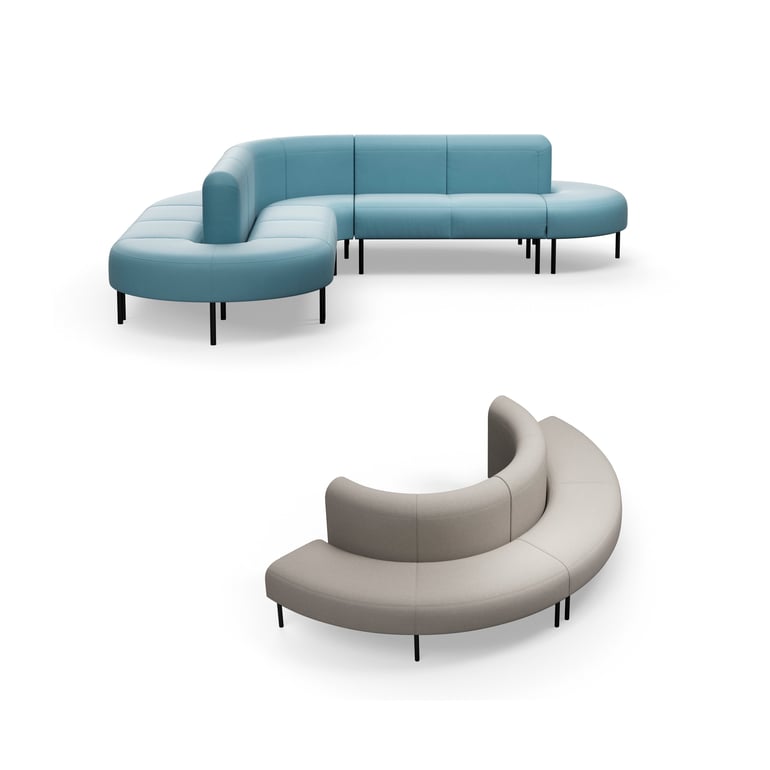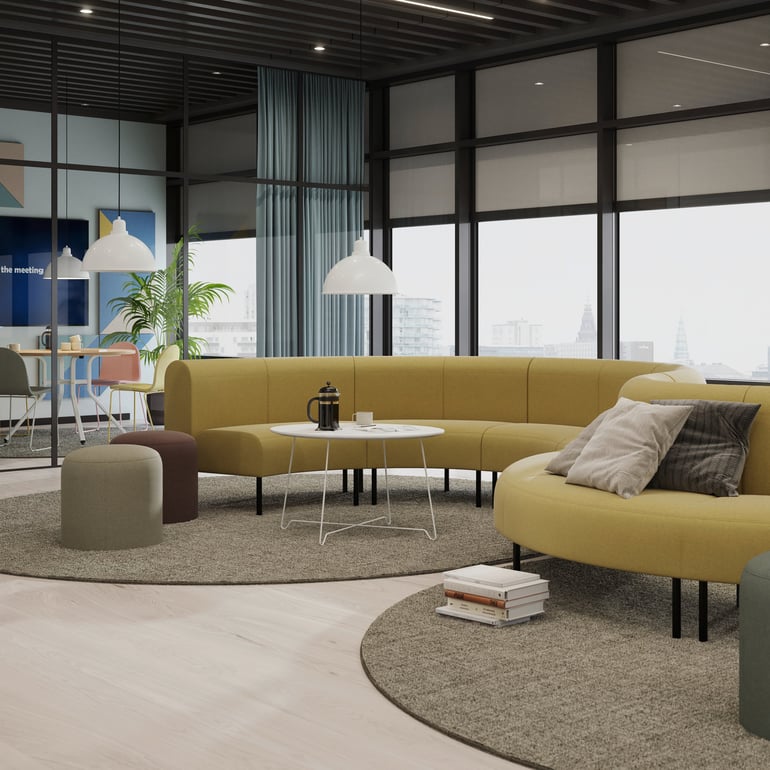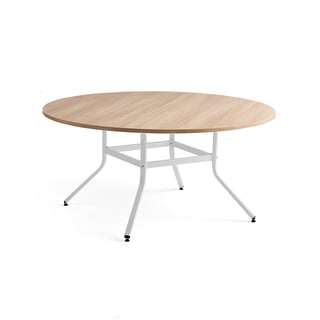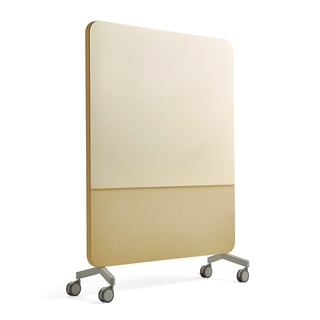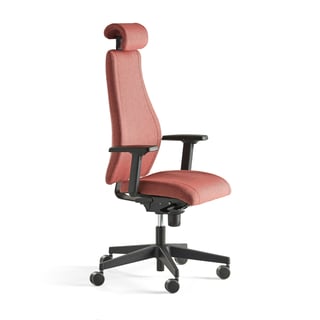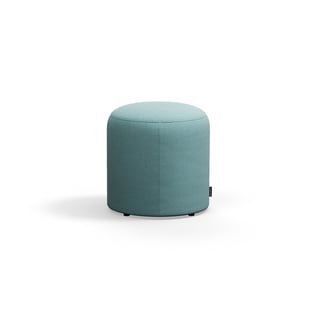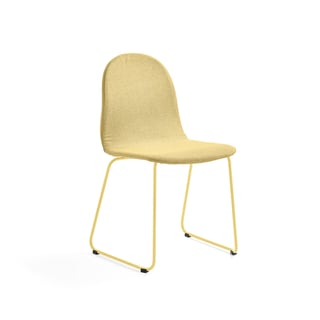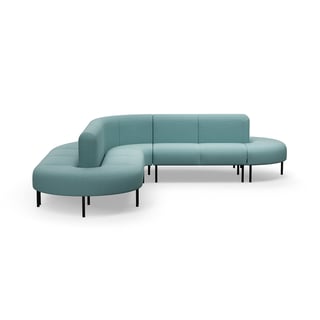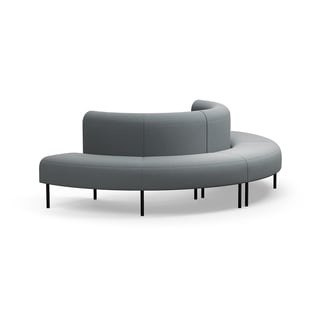Office planning tips: Create a functional and productive workspace
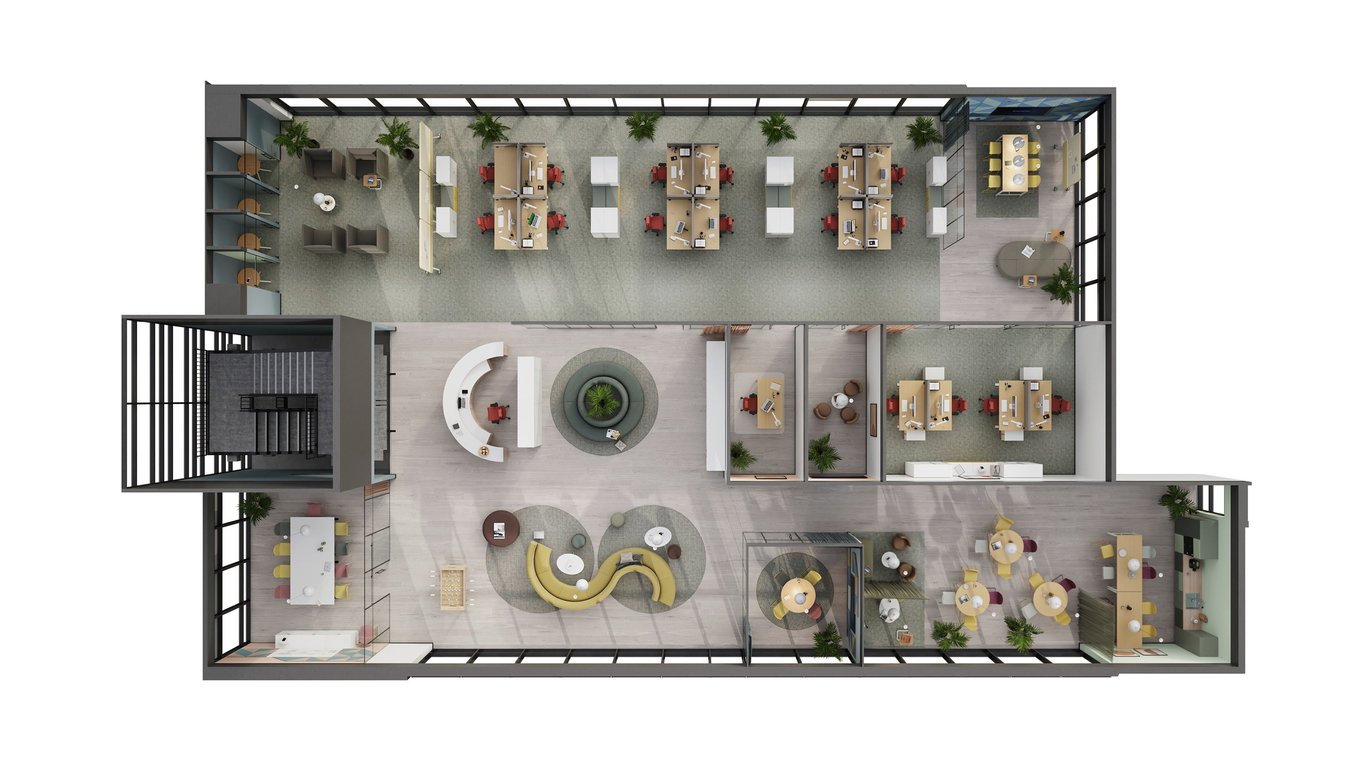
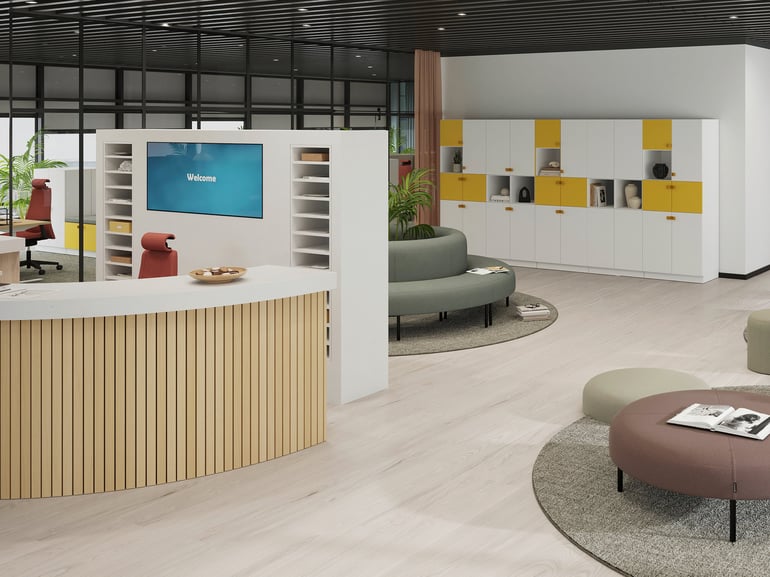
Welcoming entrance and reception areas
The reception is one of the primary meeting places. Employees, customers, suppliers, delivery staff - everyone comes through here! This place can be a hive of activity and sometimes quite noisy, office rooms that demand quiet and concentration should be located some distance away. On the other hand, a conference room may be preferably located closer to the entrance, so that staff are not interrupted by visitors frequenting the premises for meetings.
So, how can we design an entrance that leaves a good impression? By taking good care of the visitors! Where possible, the best way is to have a staffed reception that welcomes and further guides the guests. Missing a reception area? Put up signs so that first time visitors immediately understand where to go and can avoid feeling lost.
Socialising, meetings and games in the lounge
Let the entrance merge into a lounge with inviting seating furniture. This creates versatility and enables guests and employees to share the space. Apart from coffee breaks and socialising, the lounge is also suitable for informal meetings with colleagues and customers.
If there is space, you can add a playful feature to create a lively atmosphere. Focusing your energy on something else can help you relax and can also improve performance. A moment's relaxation with colleagues also enhances team spirit.
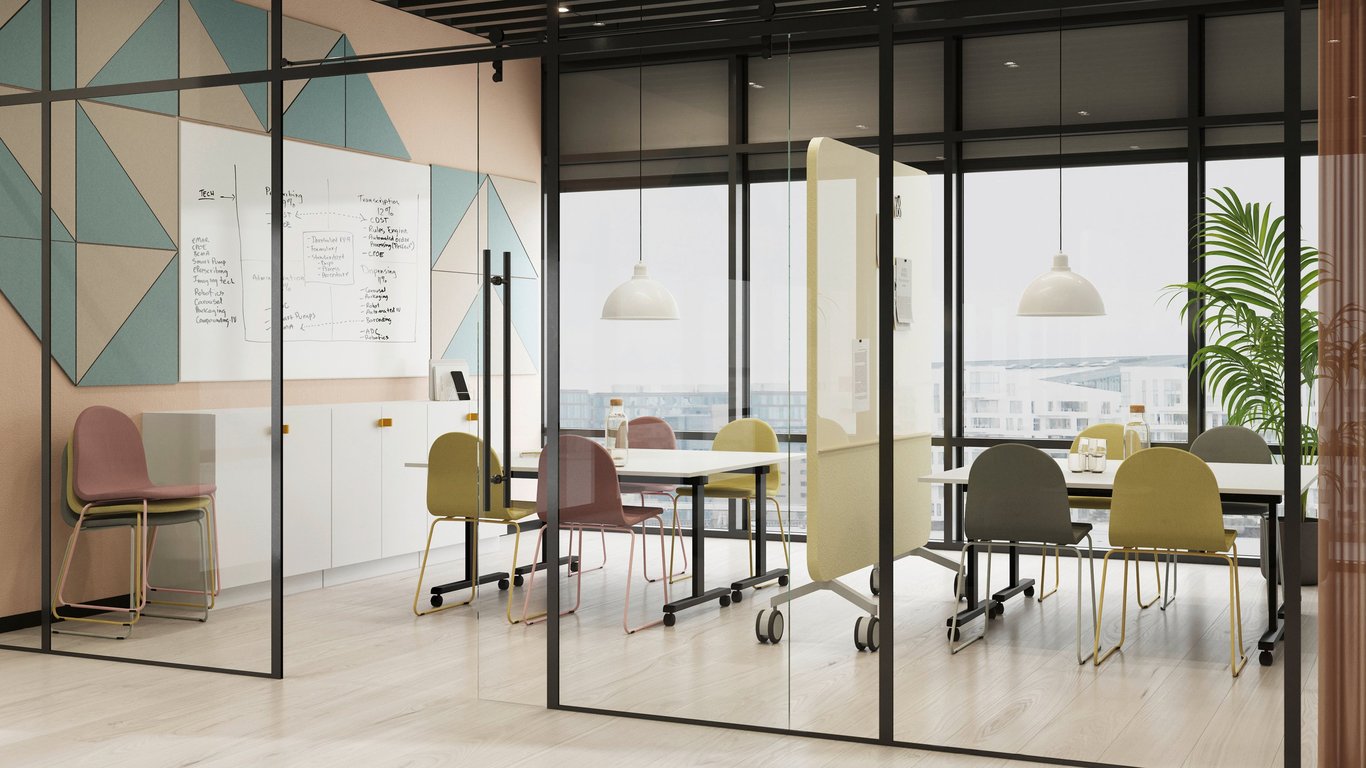
Conference rooms for seating large groups
A large and classic conference room is perfect for client presentations and committee meetings, but you can furnish it in a versatile manner to gain maximum benefit: Several small folding tables instead of one large one can facilitate quickly refurnishing the room, from a traditional meeting room to an auditorium, workshop or small meeting room. You can swap out the traditional wall mounted whiteboard with mobile writing boards for group work. If you choose to buy stackable chairs you can easily put aside any that are left unused.
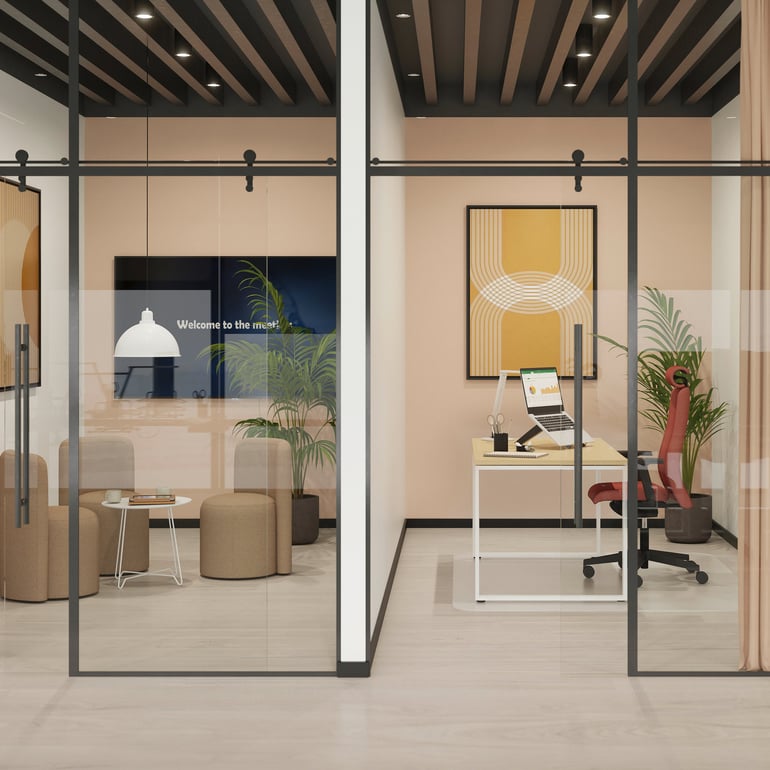
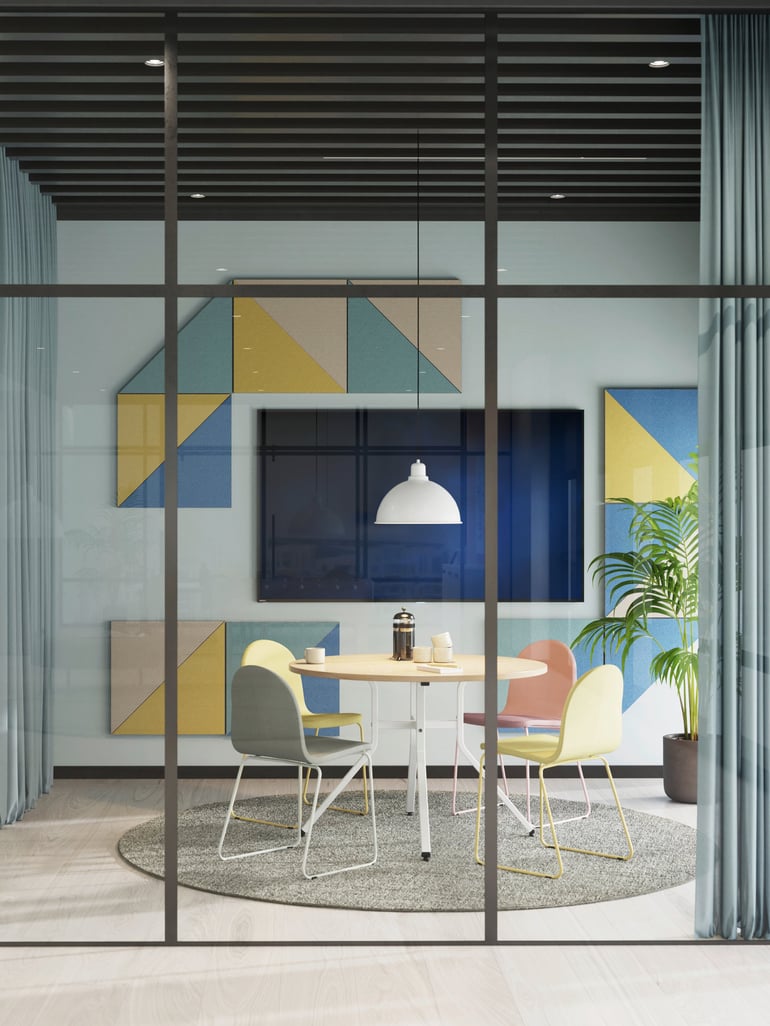
Small rooms for smaller gatherings
A companies work week may comprise of several meetings, from confidential discussions to brainstorming and short conversations and some of these can take place at the same time. So if space allows, it's good to have several smaller meeting rooms, preferably adjacent to where people are working, this can minimise the amount of people moving throughout the premises. These rooms are also suitable for those busy with work that requires a high level of concentration and also for holding virtual meetings, so as to avoid disturbing office neighbours.
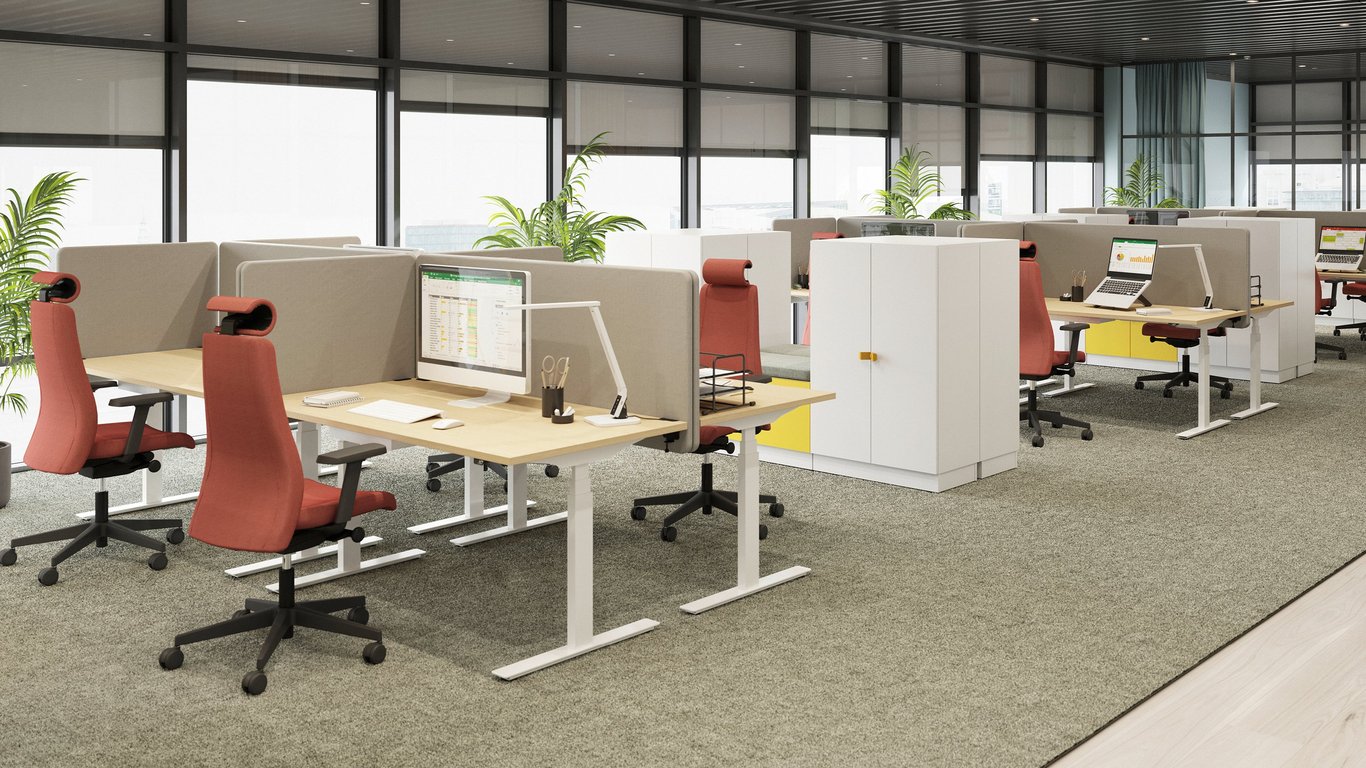
A landscape for hybrid work and collaboration
Does your office offer hybrid work - combining both working from home and in the office? In that case, an office landscape without fixed seats is a good choice, providing greater flexibility. Choose an unoccupied desk in the morning, plug in your computer and you are set for the day! Open furnishing is also suitable for permanent work stations where the staff work closely together. In both the cases, a separate meeting place that is located closely adjacent may be needed for quick meetings so as to avoid disturbing others. Printers and coffee automats can be placed centrally for best flows and efficiency.
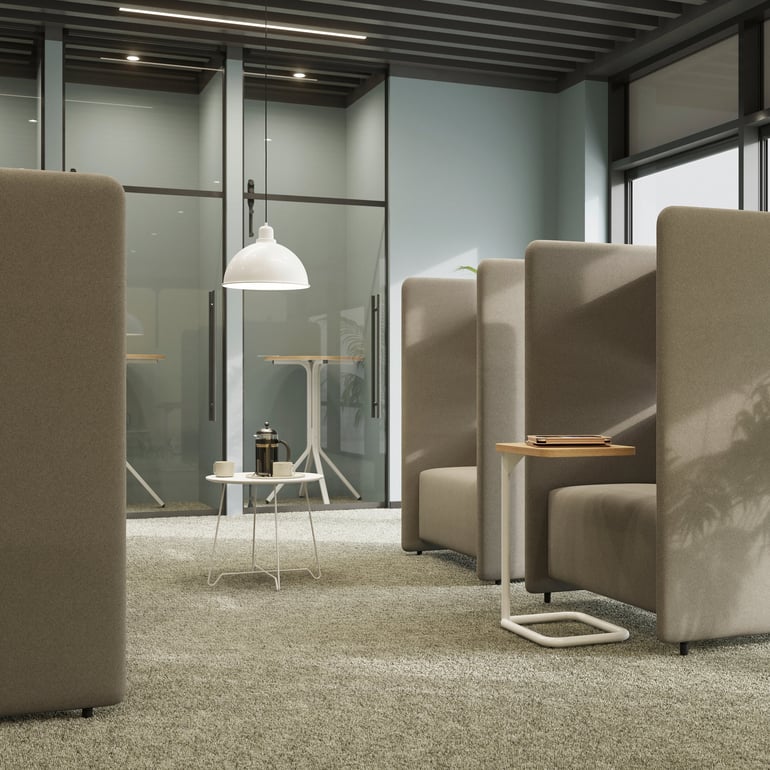
How to make open space a bit more personal
Think about comfort when it comes to the office landscape. Partition different spaces by using storage furniture and screen walls to create personal pods and use carpets and sound absorbers to achieve a pleasant sound environment. You can also add on small quiet rooms that facilitate undisturbed conversations. Make use of daylight but remember to position desks and screens properly to avoid reflections and harsh shadows from any light coming in.
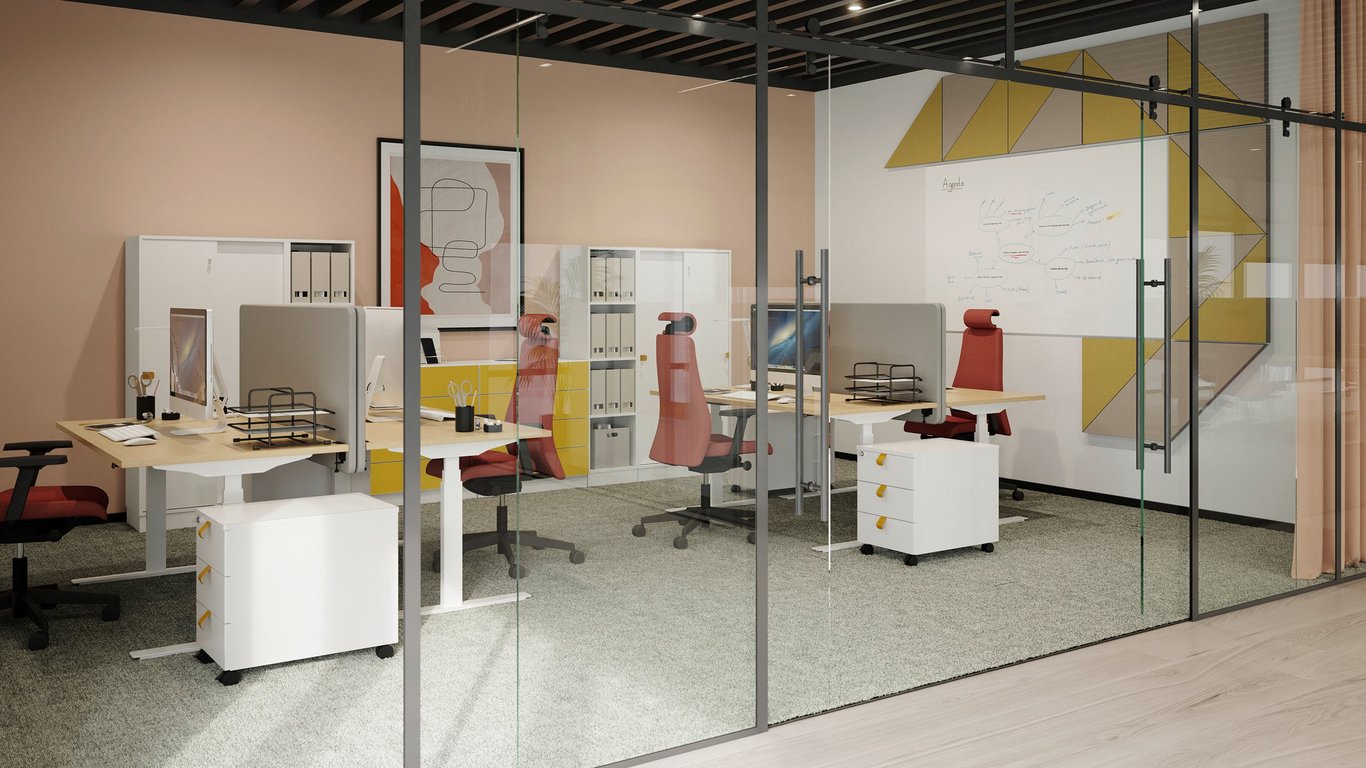
Smaller work areas for better focus
Does your office have separate rooms? First preference should be given to employees who need to work undisturbed or need a permanent work-station. Depending on the size, these rooms can sometimes be shared by several people, however make sure that people requiring the same level of concentration are grouped together.
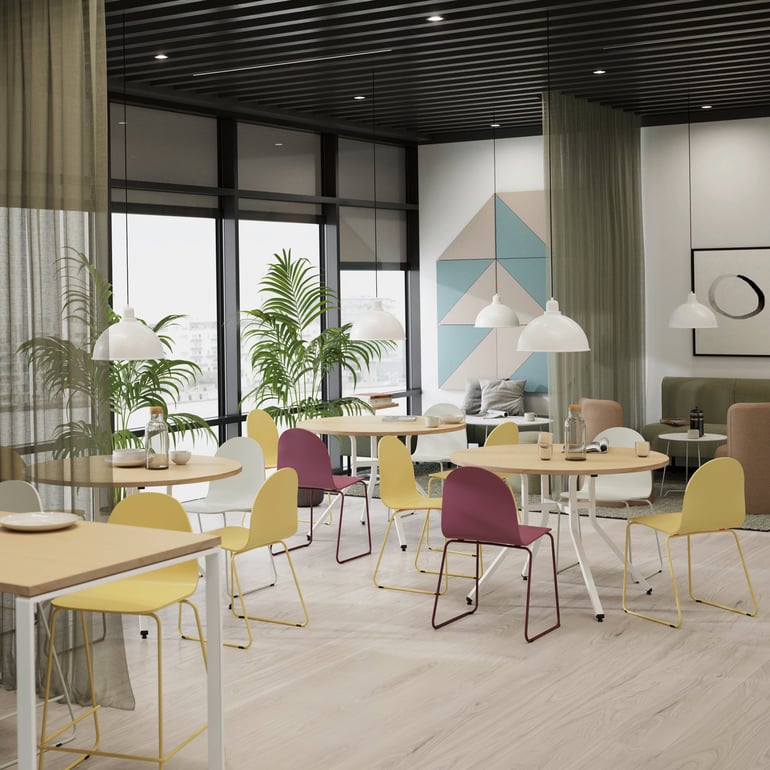
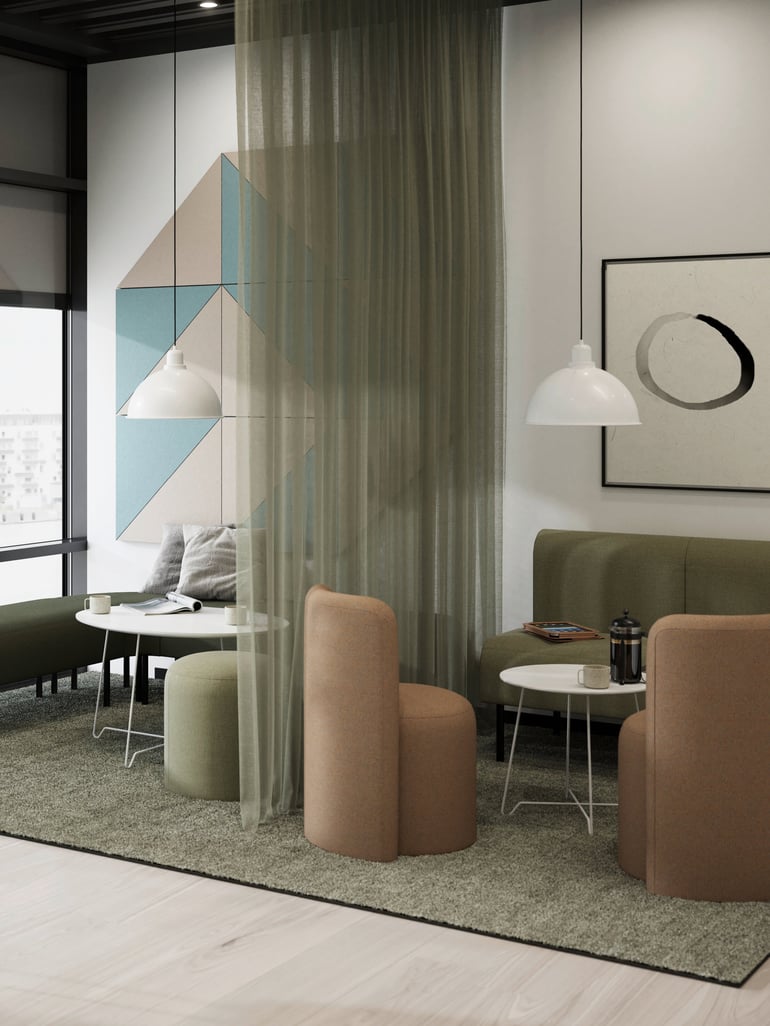
A versatile canteen can be used more
Do you only use the canteen a few times a day, to take a break and refuel? Is it empty at other times? Then you may be underutilising this resource! With a couple of add-ons such as whiteboards, curtains and screen walls, it can be used from morning to evening. A versatile room, that apart from food and chat, can be used for different types of meetings or for individual work sessions.
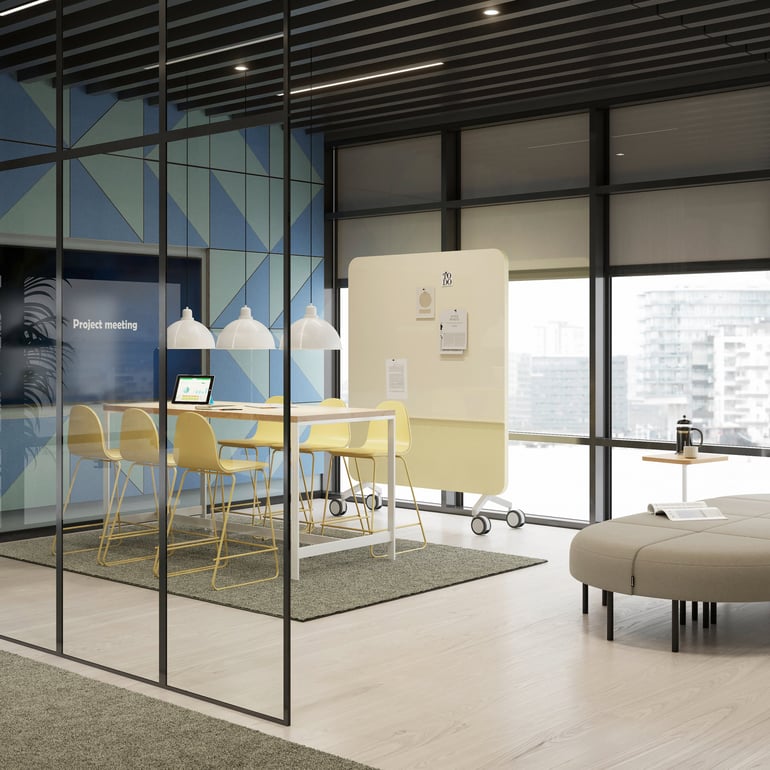
Think in terms of function, flow and flexibility
The key terms for successful office planning are function, flow and flexibility. By planning what needs to be done, how people move around within the premises and by designating more than one function to a room, every office can be upgraded! Dividing the premises into zones with different degrees of focus e.g. individual work, meetings and socialising, is the ultimate way to create areas for everything and everyone at the office.
Do you want to help in creating a well-planned office? Contact our project design team.
Need help? Ask our interior experts!
We at AJ Products are always available to help you with solutions suited just for your business. Contact us if you have questions on the choice of fabric, need some inspiration or want to know the alternatives that would best suit your premises. We can then tell you more about your choices.Recommended for a well-planned office:
Get the latest product launches and offers sent direct to your inbox
Do you want to receive exclusive offers, information about new products and inspiration on how you can improve your workplace? Sign up for our free newsletter and be the first to receive our best offers.*By clicking subscribe, I confirm that I have read the privacy policy.
